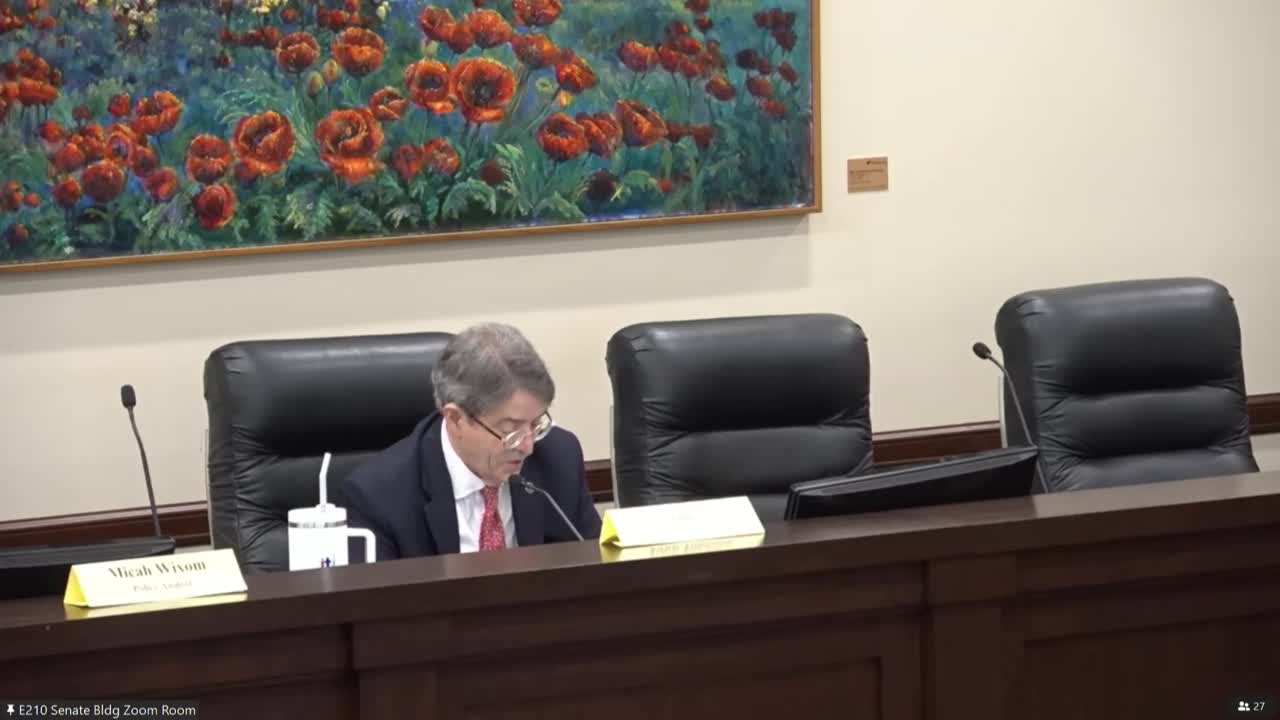Committee approves rules to tighten packet‑based credit and preserve course rigor for high school graduation
Get AI-powered insights, summaries, and transcripts
Subscribe
Summary
The Senate Education Committee passed third substitute House Bill 191, which requires the State Board of Education to adopt rules for packet‑based courses used for original or replacement high‑school credit to ensure consistent rigor.
The Senate Education Committee voted to pass third substitute House Bill 191, a bill intended to set statewide standards for packet‑based courses used for original or replacement high‑school credit.
Representative Tusher, sponsor of HB191, said districts historically used packet methods for credit recovery and to help students make up credits, but that the ease and availability of some packet offerings had recently created an incentive for students to avoid classroom work. The third substitute tasks the Utah State Board of Education (USBE) with rulemaking that defines permitted packet use for awarding original and replacement credit; it also preserves local school district authority to determine whether a particular packet meets local standards.
Why it matters: sponsors and classroom teachers said the bill seeks to protect academic rigor and prevent students from using low‑rigor packets in place of sustained classroom instruction. A teacher from Harriman High testified that some students complete packet work in just hours for credit that previously required weeks of classroom instruction.
Public testimony: Northridge Academy (an accredited distance/packet provider) told the committee it uses packets but is accredited by Cognia and urged clarity so accredited programs are not unintentionally swept into a single definition that triggers duplicate vetting. Several teachers testified that packets can be abused as a shortcut to credit and supported stronger statewide standards.
Committee action: Senator Baldry moved to pass third substitute HB191 with a favorable recommendation; the chair ruled the vote unanimous and the bill will go to the full Senate.
The bill now proceeds to the full Senate for final consideration.
